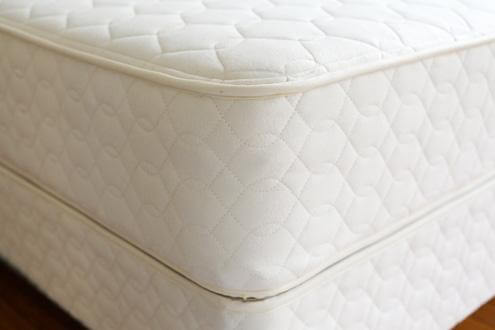Every purchase made online is encrypted with a high level of security you’ve come to expect. Your private information is never shared nor sold, so you can buy with confidence. You can also visit our store if you are in the St. Louis area.

The demand for green products is forcing retailers like STLBeds to ask tough questions not only for themselves but ultimately their consumers who will buy their organic mattresses, sheets, and pillows.
Table of Contents
“ What is more earth friendly organic cotton or organic bamboo?”
When produced for non-organic fabrics both are produced in chemical intensive processes that are very polluting in nature. The extensive use of solvents, bleach, chemical dyes, fertilizers and pesticides are major contributing factors to poor health and environmental pollution.
Both cotton and bamboo can be certified organic during the growing stages by the USDA National Organic Program (NOP). There is however major issues with certified organic bamboo as discussed by Coral Rose of “Sustainable Life Media”. She says the certifications only cover the textiles as a grown crop and not as a finished product. The confusion comes in unknown to most buyers when chemicals are added which are required making a finished product. The needed chemicals to make a finished product are not taken into consideration.
Bamboo is an example of this and is actually a Rayon material made from bamboo pulp, and therefore stops being organic in the eyes of environmentalist. It is at this point it ceases to no longer be a natural fiber like cotton. The bamboo fiber is broken down by a very chemical intensive process / mechanical process which is much more eco friendly but much more costly and is seldom used.
Many people believe the major advantage of bamboo is it can be grown in areas where no other crop can grow like mountains sides for example. Bamboo is hearty and can thrive with an abundance of water or very little water. Cotton on the other hand requires intensive irrigation , although organic cotton uses less water than non-organic cotton due to more organic materials in the soil.
Some interesting points about bamboo and cotton
• Bamboo is the fastest growing plant in the world.
• Both bamboo and cotton are considered a sustainable resource. It is claimed that bamboo is 3 to 4 times as absorbent as cotton.
• Cotton does not shrink as bad as bamboo.
Many believe bamboo to be softer that cotton and a better fabric next to the skin such as in under garments, diapers etc.
• Bamboo is in great demand as towels and bathrobes.
• Some people feel bamboo can be made to feel softer than silk and have a natural sheen not available in cotton.
Conclusion which is more organic Cotton or Bamboo?
Organic cotton is truly an organic product. It is harvested from organic land grown in an organic manner and in the application of say organic sheets they are manufactured with no bleaches, no chemical dyes, or finishing applications. Sometimes natural dyes are used which helps organic manufacturers stay true to the eco friendly process. Although the growth process can be easier on the environment when growing bamboo the chemicals required to convert organic bamboo into a yarn is not very eco friendly with a resulting fabric that is much more synthetic than organic.
